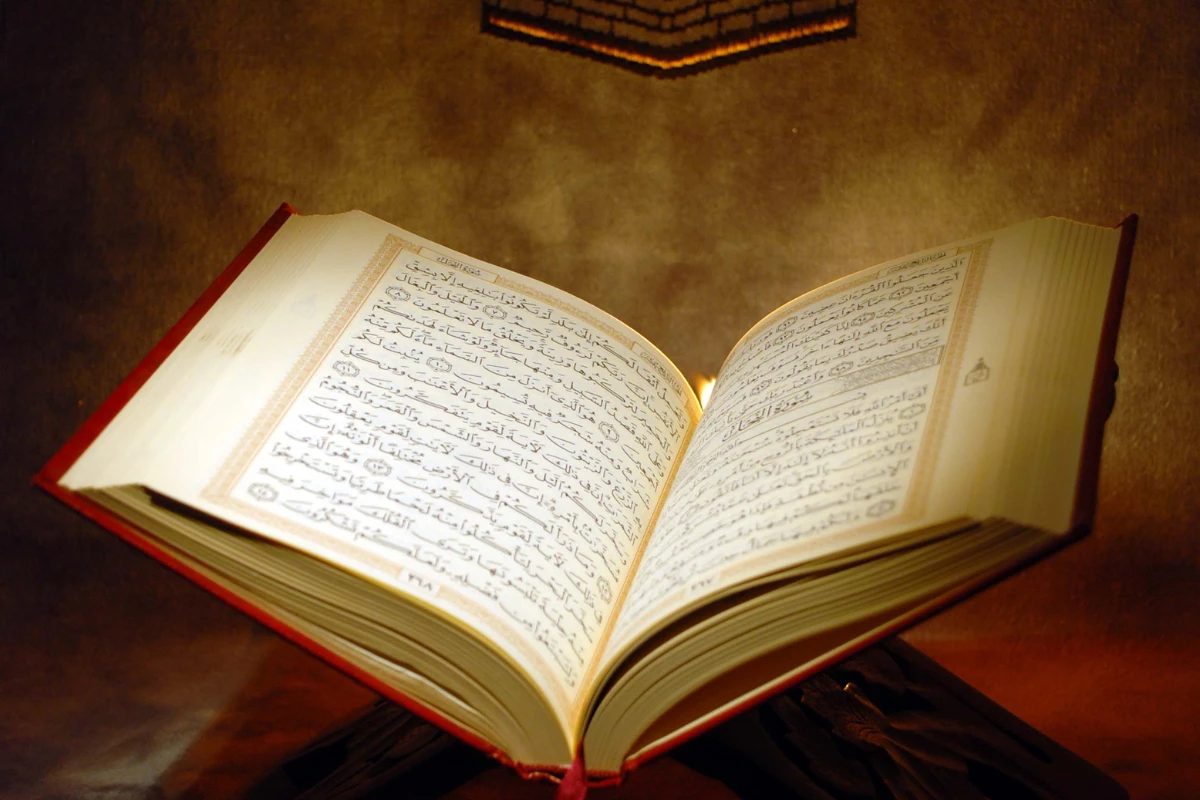The Holy Quran, divided into 30 equal corridor known as Juz or Para, is a source of guidance and wisdom for Muslims worldwide. In this comprehensive companion, we’ll claw into the Quran 19 Para, also known as” Wa Qala Allatheena,” exploring its contents, significance, and the assignments it offers to religionists.
Understanding Quran 19 Para An Overview
Quran 19 Para, named after its opening words” Wa Qala Allatheena”( And those who negate say-so), encompasses corridor of three Surahs the end of Surah Al- Furqan, the wholeness of Surah Ash-Shu’ara and Surah An-Naml’s dawn. This Para is rich in stories, guidance, and monuments that are pivotal for every Muslim to understand and reflect upon.
What’s a Para in the Quran?
Before we dive deeper into Quran 19 Para, let’s clarify what a Para means:
- One of the Quran’s thirty equal parts is a Para, also known as Juz.
- Every paragraph in the Quran’s textbook contains around one-third of it.
- The division into Paras makes it easier for Muslims to read the entire Quran, especially during the month of Ramadan
The Contents of Quran 19 Para
Let’s explore the main factors of Quran 19 Para
Conclusion of Surah Al- Furqan
The final section of Surah Al-Furqan, which opens Quran 19 Paragraph 19, emphasizes on
- The percentages of genuine followers of Allah
- The significance of penitence and good deeds
- Allah’s mercy and remission
Surah Ash- Shu’ara
The maturity of Quran 19 Para consists of Surah Ash- Shu’ara( The muses). This Surah is packed with
- Narratives of past prophets and their hardships
- Warnings to doubters
- Emphasis on the authenticity of the Quran
Morning of Surah An- Naml
Quran 19 Para concludes with the opening verses of Surah An- Naml( The Ants), which
- Presents the narrative of Prophet Musa (Moses).
- Highlights the significance of gratefulness to Allah
Key Themes in Quran 19 Para
Throughout Quran 19 Para, several important themes crop
Prophet hood and Divine Message
Quran 19 Para emphasizes the durability of prophethood and the harmonious communication brought by all prophets. It narrates the stories of several prophets, including
- Musa (Moses)
- Ibrahim (Abraham)
- Nuh (Noah)
- Hud
- Salih
- Lut (Lot)
- Shu’aib
Religionists use these tales as tasks and memorials, emphasizing the prophets’ adversity and tenacity in conveying Allah’s message.
The Power of Allah
Throughout Quran 19 Para, we see multitudinous references to Allah’s power and control over all creation. This theme serves to
- Strengthen the faith of religionists
- Advise those who reject the verity
- Encourage reflection on the signs of Allah in nature and history
The Day of Judgement
Quran 19 Para constantly mentions the Day of Judgement, reminding compendiums of
- The ineluctability of responsibility
- The importance of moral behavior in preparing for the afterlife
- The consequences of unbelief and wrongdoing
Assignments from Quran 19 Para

Quran 19 Para offers multitudinous assignments that are applicable to our diurnal lives
Tolerance in Adversity
The stories of the prophets in this Para educate us the significance of tolerance when facing challenges. For illustration
- Prophet Nuh (Nathan) preached 950 discourses but was always turned down.
- Prophet Ibrahim (Abraham) stood establishment in his belief despite opposition from his own people
These accounts encourage religionists to remain loyal in their faith and charge, no matter the obstacles they face.
The Power of Dua (solicitation)
Quran 19 Para highlights the significance of turning to Allah in times of need. We see exemplifications of prophets making dua
- Prophet Musa (Moses) seeking Allah’s help in his charge
- Ibrahim, the prophet Abraham, requesting knowledge and good seed
These incidents serve as a reminder of the effectiveness of dua and the value of keeping a close relationship with Allah.
The Consequences of Arrogance
Through the stories of once nations who rejected their prophets, Quran 19 Para warns about the troubles of arrogance and unbelief. It serves as a memorial to
- Stay humble
- Be open to guidance
- Avoid the miscalculations of former generations
Memorization and Enumeration of Quran 19 Para
For those looking to study or ameliorate their enumeration of Quran 19 Para, then are some tips
- Dissect it. Divide the para into smaller, easier-to-digest portions.
- Thickness is crucial Set away regular time for memorization and modification
- Understand the meaning Learning the restatement can prop in memorization
- Hear to recitals Familiarize yourself with proper pronunciation
- Seek guidance Consider joining online Quran classes for expert instruction
Quran 19 Para in Online Courses
Numerous online Quran literacy platforms offer courses that cover Quran 19 Para. These classes generally include
- Tajweed (proper pronunciation) assignments
- Translation and tafsir( explanation) of the verses
- Memorization ways
- Interactive sessions with good preceptors
To get a better understanding of online Quran education, you might find this composition from IslamReligion.com helpful.
Relative Analysis Quran 19 Para and Other Paras
To more understand the unique aspects of Quran 19 Para, let’s compare it with some other Paras
| Aspect | Quran 19 Para | Quran 1 Para | Quran 30 Para |
|---|---|---|---|
| Main Focus | Predictive stories, warnings to doubters | Preface to core Islamic beliefs | Emphasis on the Day of Judgement |
| Length of Surahs | Contains parts of long Surahs | Mostly short Surahs | Mostly short Surahs |
| Meccan/Medinan | Mostly Meccan | Mix of Meccan and Medinan | Mostly Meccan |
| Key Themes | Prophethood and the might of Allah | The foundations of religion | Hellfire, heaven, and responsibility |
This comparison highlights how each Para of the Quran has its unique characteristics and focus, while all contributing to the overall communication of Islam.
The Significance of Quran 19 Para in Ramadan

During the holy month of Ramadan, many Muslims make an effort to list every verse of the Quran. Quran 19 Para plays a significant part in this trip
- It marks the launch of the alternate half of the Quran
- Its enumeration frequently coincides with the middle of Ramadan
- The stories and monuments in this Para can give spiritual boost interior through fasting
Applying Assignments from Quran 19 Para in Daily Life
The training set up in Quran 19 Para can be applied to our everyday lives
| Life Assignment | Description |
|---|---|
| Gratitude | Like Prophet Sulaiman (Solomon) in Surah An-Naml, we should express gratefulness for Allah’s blessings. |
| Environmental Knowledge | The mention of various natural wonders can inspire us to appreciate and protect our environment.a |
| Standing for Truth | The prophets’ perseverance in their missions encourages us to stand up for what is right, even when it’s difficult. |
| Self-Reflection | The warnings to past nations prompt us to reflect on our own actions and strive for continuous self-improvement. |
Conclusion The Timeless Wisdom of Quran 19 Para
With its diverse array of tales, cautions, and instructions, Quran 19 Para provides religionists with a plethora of information and comfort. From the attachment of prophets to the consequences of rejecting verity, this Para provides dateless assignments that are as applicable moment as they were when first revealed.
As we look at and mirror upon Quran 19 Para, we’re reminded of the Quran’s component as a comprehensive accomplice for humanity. Its verses inspire us to strengthen our faith, ameliorate our individual, and try for success on this existence and the hereafter.
Whether you are a pupil of the Quran, a schoolteacher, or someone seeking to consolidate their understanding of Islam, Quran 19 Para offers inestimable perceptivity. By engaging with its contents through enumeration, study, and reflection, we can draw near to Allah and embody the training of our faith in our diurnal lives.
In the past, the journey to discover the Quran is still continuing on. Each reading can reveal new perceptivity and consolidate our understanding. Thus, let’s keep studying Quran 19 Para and the rest of the Quran, letting its wisdom guide us and deepen our spirituality.
For further information on the structure and association of the Quran, you might find this resource from Oxford Islamic Studies Online instructional.






Quran For All | Online Quran For Everyone
[…] penetrating and understanding the Quran has come easier than ever ahead. The conception of “Quran for All” embodies the idea that everyone, anyhow of their background or position, can connect with […]